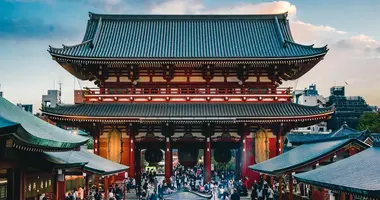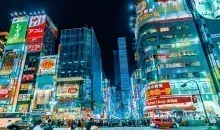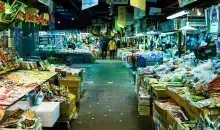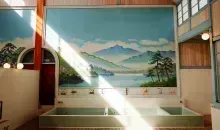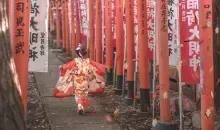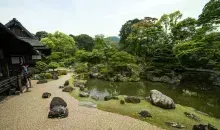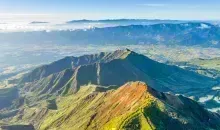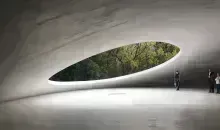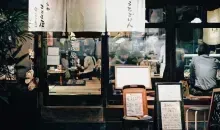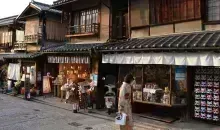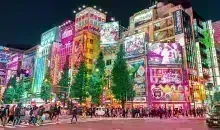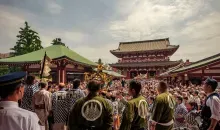Yushima Seido 湯島聖堂
Tokyo's Amazing Black Temple
Located near Ochanomizu station, the astonishing Yushima Seido intrigues with its majestic and elegant black buildings. Erected in 1690, this Confucian temple which houses the largest sculpture of Confucius in the world is considered the birthplace of Japanese school education.
A temple dedicated to Confucius in Japan
The Yushima Seido has been enthroned in the heart of the peaceful Yushima district since the Genroku era (1688-1704). However, this was not always the case. Indeed, originally, the temple was located in a completely different place corresponding to the current Ueno Park! It was founded in 1630 by Hayashi Razan (1583-1657), a great scholar, neo-Confucian philosopher, tutor, and adviser to the first four shoguns of the Tokugawa shogunate, within his property in Shinobugaoka.
It was then a private Confucian temple, the Sensei-den or "Temple of the masters", dedicated to Confucius and four of his disciples:
Confucius (551–479 BC), the greatest Chinese philosopher who gave rise to Confucianism or the "school of the scholars", a philosophical, moral, and political doctrine based on a system of personal and public morality (good conduct, wisdom, filial piety, etc.) allowing fulfillment and harmony with one's fellow beings.
Mencius (372-289 BC), was a Chinese Confucian philosopher, writer, and thinker who is said to have been a disciple of Zi Si, the grandson of Confucius. He is the most famous Confucian scholar after the great Confucius himself.
Yan Hui (513-482 BC), was a disciple of Confucius and revered as one of the Four Sages of Confucianism and one of the Twelve Philosophers.
Zengzi (505-435 BC), a student of Confucius, another of the four sages, began the line of traditional teachers of Confucius.
Zi si (481–402 BC), philosopher, author, and grandson of Confucius taught Confucianism to Mencius.
It is a shogunal decision; that of the fifth Tokugawa shogun, Tokugawa Tsunayoshi (1646-1709), who would change the fate of the Sensei den. A fervent defender of neo-Confucianism, the shogun transferred and enlarged the temple to Yushima in 1691. The main building which serves as the official temple of the Tokugawa clan is called Taisei-den. As for the whole complex, it becomes the seido of Yushima or "Holy place of Yushima".
The origins of the Japanese school system
Since its construction in 1630, the temple housed an educational institution. This tradition will continue despite the relocation to Yushima and will intensify at the end of the 18th century. Thus, in 1797, the small school of the Hayashi family gave way to the Shohei-Zaka Gakumonjo, also called Shoheiko, the official school of the great leaders of the Tokugawa clan; an academy placed under the direct control of the shogunate.
The Meiji Restoration will overcome the Shohei-Zaka Gakumonjo. It closed its doors in 1871. From then on, the various buildings of Yushima Seidô housed other university and cultural institutions. This was followed by the Ministry of Education, the Tokyo Normal School (now Tsukuba University), the Women's Normal School (now Ochanomizu University), Japan's first library, and the first museum. of the archipelago namely the National Museum of Tokyo. It was at the Taiseiten that the first exhibition of the museum took place on March 10, 1872, before it moved to Ueno Park in 1882.
Everyone now recognizes the historic role of the temple in the Japanese education system. The students are not mistaken there. During exams, many of them flock to Yushima Seido to pray for success in their exams! The intrinsic link between Yushima Seidô and education is therefore not completely broken.
- Read also: The Tokyo National Museum in Ueno
A temple dressed in black
Surrounded by its enclosure wall dating from the Edo period (1603-1868), a tsukiji bei wall was built using a traditional technique of piling up mud and tiles, the Yushima Seido disconcerts visitors accustomed to frequenting shrines and temples in vibrant or natural raw wood colors. This black color is not original. It would not have been adopted until 1799 when the temple was enlarged and rebuilt.
In all likelihood, the Yushima Seidô initially presented more conventional hues: vermilion red structures and verdigris roofs.
However, it is once again black that was chosen by the architect Ito Chuta (1867-1954) during the reconstruction of the temple in 1935. The Yushima Seidô is indeed one of the countless losses caused by the great earthquake of Kanto in 1923. A terrible irony of fate when you know that the latter had just been classified as a national historic site the previous year.
Address, timetable & access
Address
Phone
+81 3-3251-4606Timetable
5 minutes from Ochanomizu subway station on the Chuo-Sobu and Marunouchi linesPrice
FreeAccess
Open daily from 9:30 am to 5 pm. The Taisei den is open to the public on Saturdays, Sundays and public holidays from 10:00 am until closing.
























